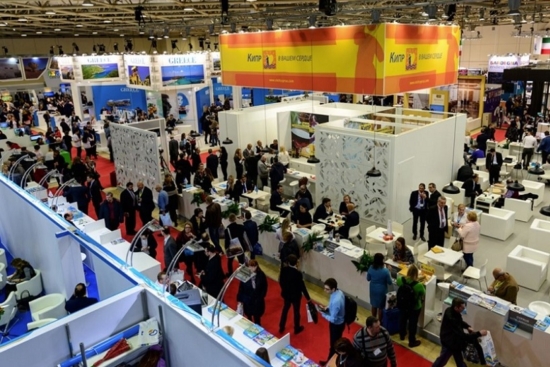
What does the future of meeting space look like? Here are 9 key trends identified in a recent report and their impact on future meeting planning.
Which comes first, meeting spaces or the meetings planned to be held in these venues? While it may once have been the opportunities and constraints of venues that drove conferences and events, today’s forward-thinking venues have disrupted that model and are now looking to understand the needs of today’s and tomorrow’s conference organizers and attendees so they can to meet future needs.
Mark Cooper, CEO of the International Association of Convention Centers (IACC), said at the launch of the global association of meeting and convention venue professionals’ 2024 Meeting Rooms Report: “For venues that aim to deliver exceptional experiences, staying ahead of the curve Status matters.” Future report. IACC has been producing this report since 2016 by gathering insights from meeting planners, venue operators and other global industry experts, identifying emerging trends that are both driven by changes in the way meetings and events are currently planned. Impact planning for future meetings.
- attendee experience. “Creating experiences” for attendees has now become the top priority for 80% of meeting planners, and attendee expectations, especially those of the younger generation, are driving the creation of venues that can accommodate more breaks, personal time and one-on-one needs space – an engagement.
- connection with nature. Even as meetings become more technology-focused, the need to balance technology with biophilic design elements continues to increase. More than 70% of venues now offer attendees more ways to connect with the natural world, including outdoor meeting spaces, walking trails and conference rooms with large windows that let in lots of natural light.
- flexible space. As meeting planners try new ways to encourage collaboration and teamwork, venues are responding by offering more collaborative spaces outside of formal meeting rooms. Even within those more traditional rooms, 71% of venues said at least three-quarters of the furniture was designed to accommodate flexible room settings.
- food and drink. Nearly half of venues reported a decrease in alcohol consumption, while a whopping 89% said they had seen an increase in complex and specific special dietary needs and a desire to create memorable experiences through themed dining events. Affordable menu options using less expensive ingredients are also key to meeting group catering budget constraints, 70% of venues said.
- Sustainability. Venues are responding to requests from business groups and associations who need to adhere to corporate sustainability development goals (SDG) to ask how they can make their conferences more environmentally friendly by implementing programs to reduce food waste (83%) Develop plans to eliminate single-use plastics from food waste (88%) and obtain environmental and/or sustainability certification (75%).
- AI. While AI is growing in popularity for planning meetings, AI adoption remains low on the venue side, with venues primarily using it for marketing, data analytics and revenue management. However, more than a third said they were considering using AI in more areas, particularly in sustainability. For example, some venues say they see opportunities to use AI for creative menu planning that incorporates locally produced ingredients and minimizes food waste.
- virtual reality. To date, the main application of VR in conference venues has been to provide VR on-site tours. While only 28% said they were doing so now, a further 28% said they planned to offer VR venue tours within the next year.
- Cybersecurity. With the rise of artificial intelligence, criminals are leveraging AI for deepfake social engineering and targeting hotel venues around the world with AI-powered malware. According to Hospitalitytech.com, “With more sophisticated and dangerous attacks on the horizon, hospitality organizations need to prepare their systems, defenses and teams to defend against new types of threats.” The IACC report found that venues are fully aware of the threat, 89% of venues said they believe cybersecurity will become a bigger issue in the next three years.
- social responsibility. With social responsibility becoming a central theme in many of the trends identified in the report, venues are increasingly focusing on their approach to sustainability, inclusivity and community engagement.
These findings indicate that venues are aware of the shift towards a more personalized, sustainable and technology-integrated meeting experience and are placing a strong emphasis on attendee well-being and engagement. In the near future, if this is not already happening, they anticipate planners may take a more holistic approach, balancing technological advancements with human-centered experiences, sustainability initiatives and flexible design concepts.
You may also be interested in…
Is your event sustainable?
9 Ways to Make Meetings More Friendly for Neurodivergent People
Exclusive: Event trends you need to know now











Leave a Reply Cancel reply
You must be logged in to post a comment.